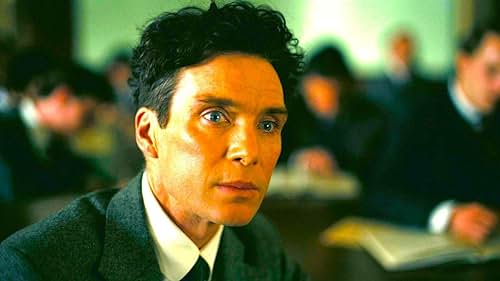Denis Villeneuve’s argument that the lengthy runtime of “Oppenheimer” contributed to its surprising box office success challenges conventional wisdom in the film industry. Christopher Nolan’s epic biopic about the life of J. Robert Oppenheimer, the father of the atomic bomb, defied expectations by grossing nearly $1 billion worldwide, despite its 3-hour runtime and complex subject matter.
Villeneuve, known for his own ambitious projects such as “Dune: Part Two,” suggests that audiences, particularly younger viewers, are drawn to longer films that offer substantial and meaningful content. He points out that “Oppenheimer,” despite being a dialogue-driven, R-rated movie about nuclear physics, resonated with audiences, especially the younger demographic, who crave cinematic experiences that go beyond typical summer blockbusters.
The success of “Oppenheimer” raises questions about the relationship between film length and audience engagement. Traditionally, longer runtimes have been seen as a deterrent for moviegoers, who may prefer shorter, more digestible films. However, Villeneuve’s argument challenges this notion, suggesting that audiences are willing to invest their time and money in films that offer depth and substance, even if they require a longer commitment.
Villeneuve’s own filmography reflects this belief, with projects like “Dune: Part Two” pushing the boundaries of conventional runtime expectations. Despite its lengthy duration, “Dune: Part Two” is anticipated to perform well at the box office, indicating that audiences may indeed be receptive to longer films that offer immersive and meaningful storytelling experiences.
The success of “Oppenheimer” and the anticipation surrounding “Dune: Part Two” suggest a shifting landscape in the film industry, where audiences are increasingly seeking out cinematic experiences that challenge and engage them on a deeper level. As filmmakers continue to push the boundaries of storytelling and creativity, it will be interesting to see how audience preferences evolve and shape the future of cinema.
FAQ
Why did “Oppenheimer” achieve such success despite its lengthy runtime?
Denis Villeneuve argues that the film’s extended duration worked in its favor, making it seem like a more meaningful and substantial experience for audiences, particularly younger viewers who crave depth in cinematic storytelling.
How does Villeneuve’s argument challenge traditional views on film length?
Traditionally, longer runtimes have been seen as a deterrent for audiences. However, Villeneuve suggests that audiences are now more receptive to longer films that offer depth and substance, challenging the notion that shorter films are always more appealing.
What does the success of “Oppenheimer” suggest about audience preferences?
The success of “Oppenheimer” and similar projects indicates that audiences are increasingly seeking out cinematic experiences that challenge and engage them on a deeper level, rather than opting for more conventional, easily digestible fare.
How does Villeneuve’s own filmography reflect his beliefs on film runtimes?
Villeneuve’s own projects, such as “Dune: Part Two,” often feature extended runtimes and ambitious storytelling. Despite their length, these films are anticipated to perform well at the box office, suggesting that audiences may indeed be receptive to longer, more immersive cinematic experiences.
